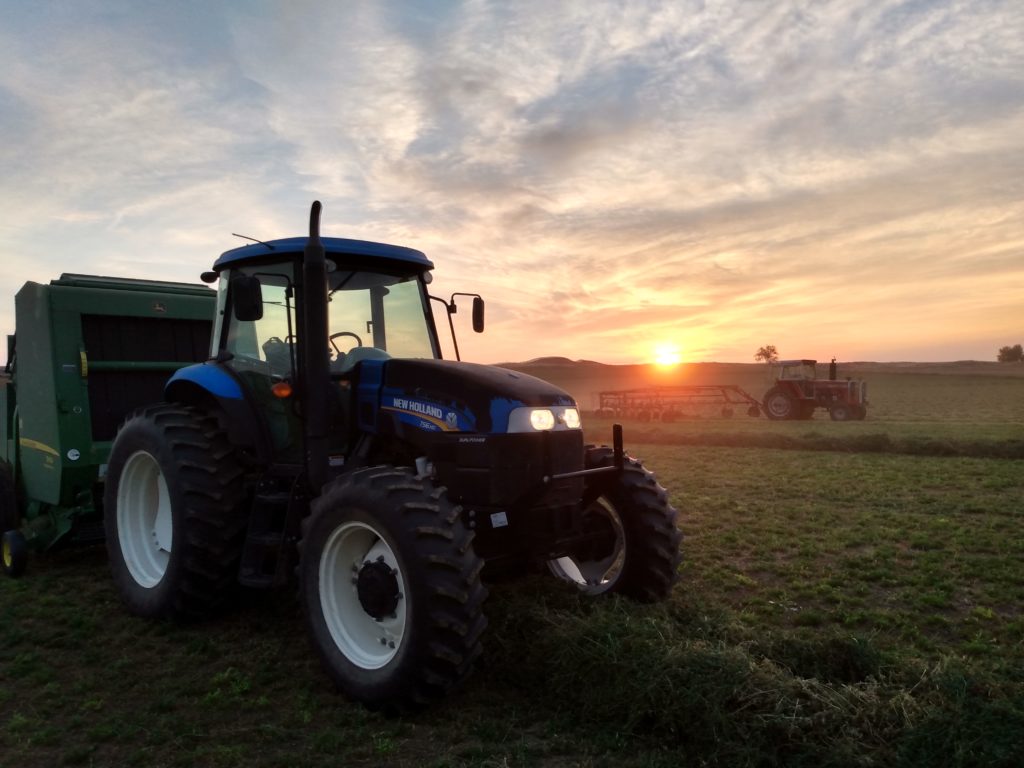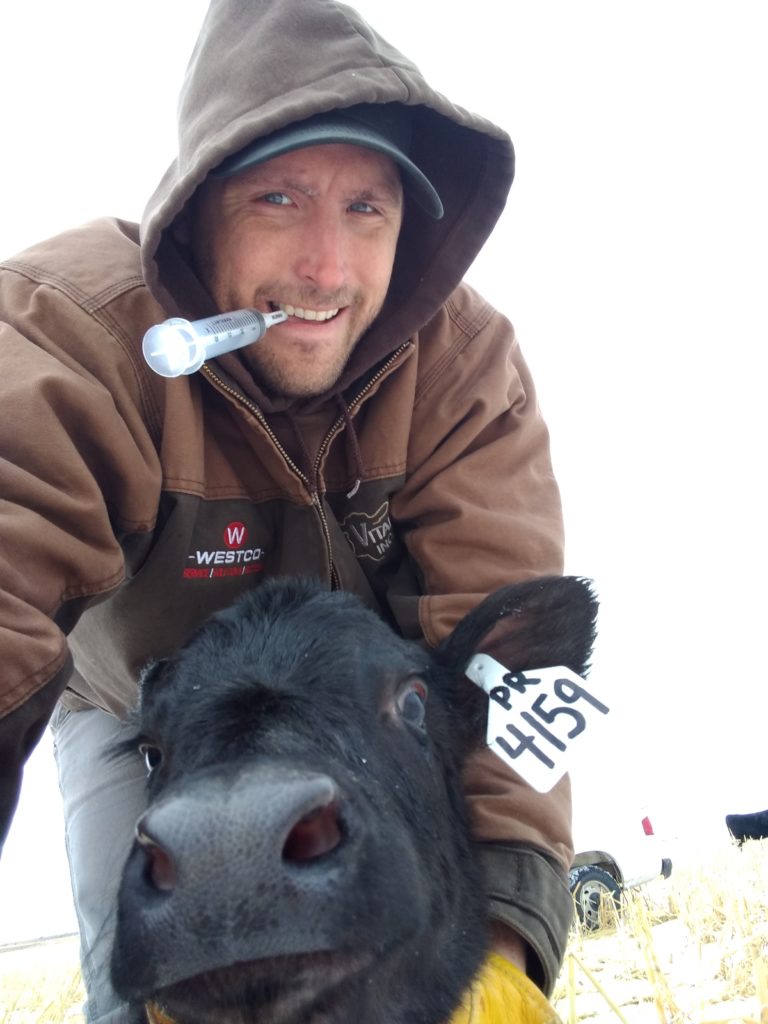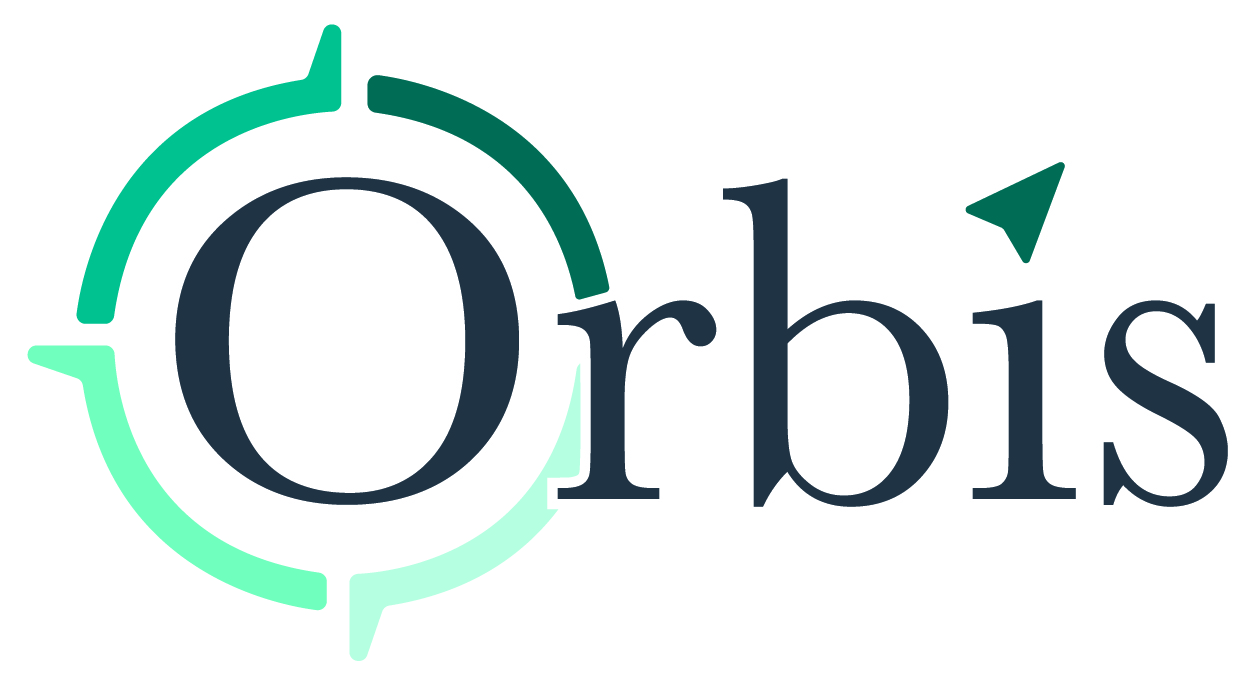Bill Gates boldly stated in his new book, How to Avoid a Climate Disaster, that rich nations should move completely to synthetic beef. He claims that synthetic meats are one of the main leverage points to combating climate change.
Just a few weeks after the Bill Gates’ story hit the news, Governor Jared Polis of Colorado declared his state would celebrate “MeatOut” day on March 20, as part of an initiative to have more people shift to a plant based diet. Our neighbor to the south must not have learned after he received backlash from his constituents for his support over the Impossible Whopper. He stated that he only wanted to help Colorado Ag Producers “See the Future.” Cattle producers in Colorado were quick to defend their own case, and remind their Governor that beef has had a large role in building Colorado’s economy.
It isn’t the first time beef, or America’s food system for that matter, has been labeled a direct threat to the climate and environment. And after several years of unfair cattle markets, drought, and undervalued labor in agriculture and the beef industry, this time it stung producers just a little bit more.
Full disclosure, I’m a cattle rancher.
In fact, I mark the fifth generation to run cattle on the same swatch of grass that have shared the last name of Ochsner. My father and I brand our calves every spring with the same brand my great-great grandfather first registered a few years after claiming that piece of land, located on the beautiful, but unforgiving high plains of SE Wyoming.
With privilege comes sacrifice
It’s a privilege to be able to say that, and it’s also safe to say that privilege has come with an incredible amount of sacrifice, labor, and tribulation. Raising beef isn’t an easy thing to do. On our operation, we run cows on native pasture. We grow crops to feed the cows and our calves on our farm. We are just one small part of the beef value chain, which is among the most diverse value chains of food production in the country.
Sustainability, and understanding that humans have an impact on our natural environment – both positively and negatively – guides many of our decisions on the ranch.
Raising beef is what allowed me the opportunity to study at one of the earliest business schools to offer a Masters of Business in Sustainability in this country. Sustainability, and understanding that humans have an impact on our natural environment, both positively and negatively, guides many of our decisions on the ranch. During graduate school, I realized sustainability in Seattle is the same as what folks on the prairie used to call survival. Just a few generations ago in rural America, families would rely on very few inputs to sustain their lives, producing most of what they needed themselves. What they couldn’t produce themselves, they could find during their monthly pilgrimage into town.

Pursuit of efficiency
Present day production agriculture is quite different from the system in which my grandfather grew up. As the country grew, consumers demanded high quality food. They also demanded that food was produced as cheaply and efficiently as possible. The pursuit of efficiency and the ever growing demand on farmers to grow more with less inputs has driven agriculture to what it is today. That ability to do more with less, is a testament to the resilience. It led to innovation by all of the farmers and producers that came before me, and everyone else in the pursuit of a livelihood for their family. This spirit is what feeds a growing population. Farmers and ranchers keep getting better at what they do because the world economy has demanded that they do so.
Resilience and innovation are the spirit that feeds a growing population.
American farmers really are the best in the world at what they do. Throughout history, as consumers and corporations demanded the farmer to do things better, they’ve answered the call. Although food security is still a major issue in this country and across the world, it’s no fault of the farmer. We need to examine the system in which food is produced, processed, and distributed in our nation.

This is personal
That’s why it hurts just a little when folks like Bill Gates and Governor Polis point the finger at production agriculture and the beef industry. Then it becomes personal for family farmers and ranchers who are continually making production decisions to benefit their next generation. Knowing that their kids will someday take over the family farm or ranch is not only a great compliment, it’s a noble cause. Family is a major part of agriculture in this country. As more and more farmers retire, and more land is used for development, it isn’t without pause to wonder what the future of farm/ranch sustainability really looks like.
We forget sometimes what we actually need in this life to survive. We must eat. Because of agriculture, the world population continues to grow, and cities continue to thrive. We can focus efforts on other things besides worrying about what will be waiting at the dinner table after a long day of work. The world population will continue to demand more and more from the farmer/rancher. They will meet those demands, because if anyone is up for the challenge, it is them. The challenges in agriculture are endless.
The reality is that no matter how determined or skilled a farmer/rancher is, it still takes a little luck to make it all work.
That’s why we as ag producers are disappointed by outlandish statements from Bill Gates in the national media. Or why it hurts when a governor wants to help farmers ‘see the future’ while he hasn’t taken time to fully appreciate the present accomplishments the farmers in his state have made. Many people unintentionally ignore the sacrifice made from agriculturalists to support the economic system in this country. All the food that we eat was grown by someone. I’m not here to claim that our food system is perfect. It is also important to recognize that it takes an awful lot of work to produce the products that make up that very system.
Let’s talk about sustainability
If we really want to have a conversation about sustainability in our food system, and how to reduce the impact it has on the climate, we should talk about how much food is wasted. We should look at how many miles that food had to travel, and what type of practices that farm uses to grow the food. America’s farmers sequester a lot of carbon with the crops that they grow, and livestock play a very important role in the carbon cycle in our country’s vast grasslands. Farmers/ranchers will continue to work to do more with less, and meet the demands of food consumers. For a more sustainable future we need world leaders, state leaders, and local leaders, to work together with their agriculturalists.
We need to build resiliency back into our food system. While the global demand will continue to grow for calories, we must also remember that there is food insecurity all over our country, even in the most fruitful valleys in our nation. It is important for people in power, like Bill Gates and Governor Polis, to forge solutions with America’s farmers/ranchers, instead of ignoring them. America’s agriculturalists have answered the call for many generations. To sustain us in the future, it will take all of us working together.

